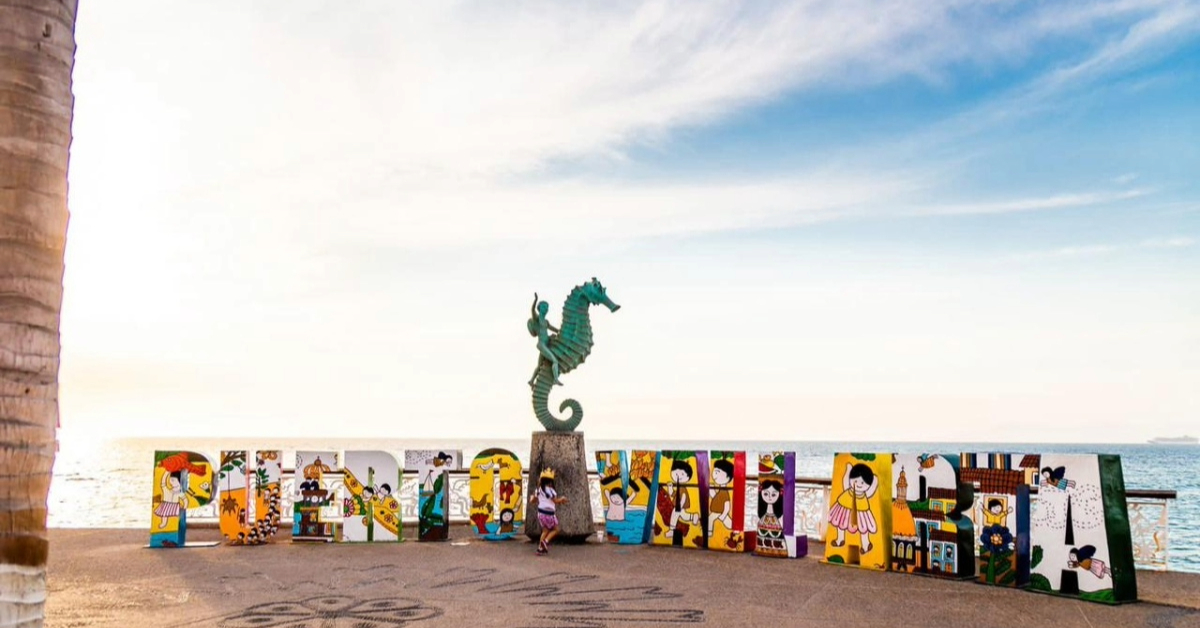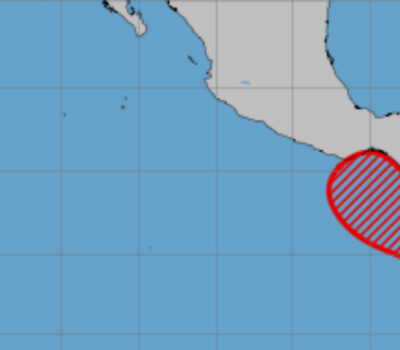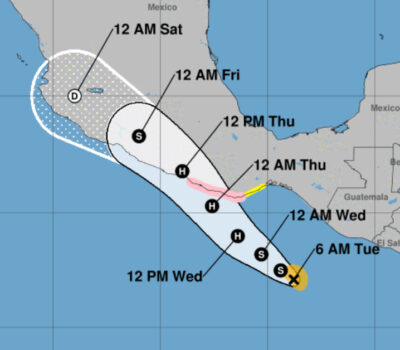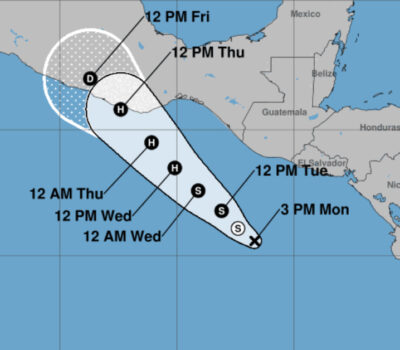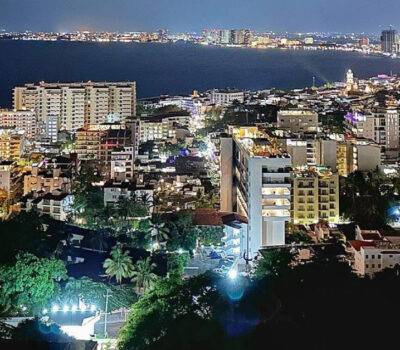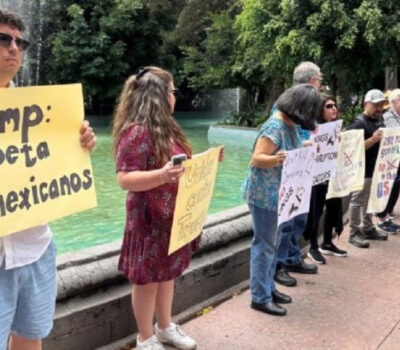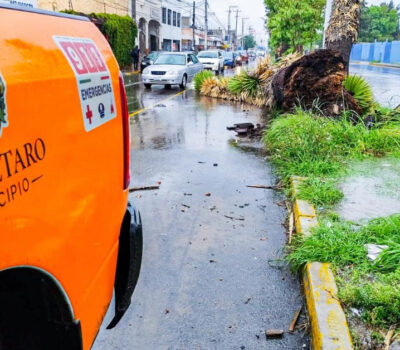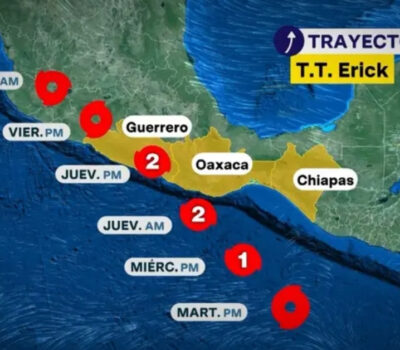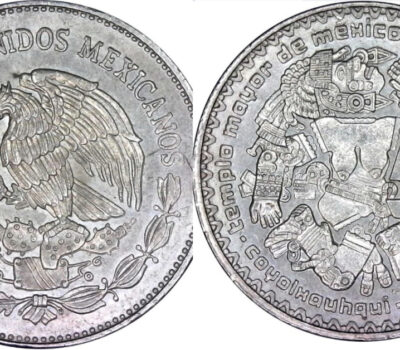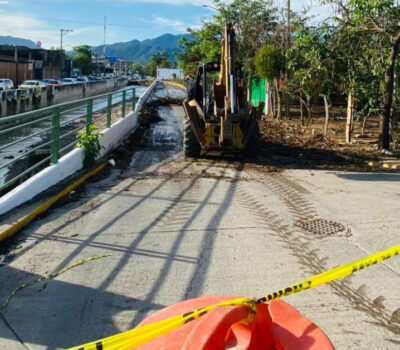Puerto Vallarta, Jalisco – In a controversial move, the newly elected administration in Puerto Vallarta has introduced a new tax on foreign visitors to help address a staggering 400 million peso budget deficit uncovered after the departure of the previous government. The decision, announced on November 9, 2024, comes just a month after the city revealed the missing funds, raising questions about the role of corruption and financial mismanagement in municipal governance.
The proposed tax of approximately $7 USD per adult visitor is intended to fill budget gaps, but critics argue it shifts the burden of government inefficiency and corruption onto the very group that sustains the city’s economy: foreign tourists. Puerto Vallarta, a city renowned for its vibrant beaches and robust tourism industry, relies heavily on international visitors, who generate the majority of its revenue.
“Friendly” Tax or Tone-Deaf Policy?
According to the mayor, who introduced the measure to the city council, the tax aims to foster a sense of shared responsibility among tourists, ensuring they “feel part of the quality of services and attention they receive.” Representatives from the shipping and tourism sectors reportedly suggested the tax be framed as “friendly,” encouraging visitors to view it as a contribution to maintaining public spaces and attractions.
However, this narrative has done little to quell skepticism. With no explicit guarantee that the funds will be allocated to services benefiting tourists, critics have labeled the policy a short-sighted attempt to patch up systemic issues.
“Puerto Vallarta’s track record shows us that money doesn’t always end up where it’s supposed to,” said a local business owner, citing years of allegations about corrupt city contracts and unfulfilled promises. “We see it with our trash collection services, which are awarded to well-connected companies but fail to deliver. Why would this tax be any different?”
Corruption at the Core
The announcement of the new tax comes on the heels of a damning revelation about the city’s finances. The discovery of 400 million pesos in unaccounted funds has only intensified public scrutiny of municipal operations. Residents and watchdog groups are calling for greater accountability, pointing out that the missing funds reflect a broader culture of mismanagement rather than isolated incidents.
Puerto Vallarta’s reliance on awarding lucrative contracts to friends and family of government officials has resulted in poor services, with the city’s growing trash problem being a visible symptom of this practice. Both locals and tourists have expressed frustration over overflowing bins and uncollected garbage in popular areas.
A Strained Relationship with Tourists
While the new tax may seem minor, critics argue that it risks alienating tourists, especially those already grappling with economic pressures at home. Rising inflation and economic uncertainty in key markets like the United States have made cost a significant factor in travel decisions. For some, the tax might not only discourage visits but also reinforce the perception that foreign tourists are being unfairly targeted.
“There’s this stereotype that all foreigners are wealthy,” said a Canadian expat living in Puerto Vallarta. “That assumption is out of touch with reality, especially now. Many people are stretching their dollars just to enjoy a vacation. This tax could be the tipping point for them.”
A Call for Sustainable Reform
Critics argue that Puerto Vallarta needs to address the root cause of its financial woes—corruption—rather than imposing additional costs on visitors. They emphasize that sustainable growth requires transparency and accountability, not quick fixes.
“Every peso collected from tourists should be traceable,” said a local activist. “If the city wants to maintain its status as a world-class destination, it needs to prove it can manage resources responsibly. Otherwise, tourists will go elsewhere.”
For now, the new tax is set to move forward, with officials framing it as an essential step toward fiscal recovery. However, whether it will achieve its intended purpose—or exacerbate Puerto Vallarta’s challenges—remains to be seen.
As the debate unfolds, one thing is clear: the city must grapple with deeper systemic issues to ensure its future as a thriving tourist destination, rather than simply asking visitors to pay the price for past failures.
Puerto Vallarta, Jalisco – In a controversial move, the newly elected administration in Puerto Vallarta has introduced a new tax on foreign visitors to help address a staggering 400 million peso budget deficit uncovered after the departure of the previous government. The decision, announced on November 9, 2024, comes just a month after the city revealed the missing funds, raising questions about the role of corruption and financial mismanagement in municipal governance.

